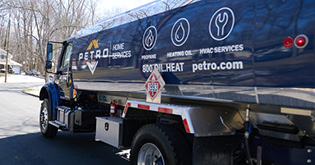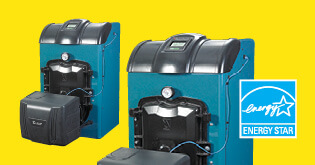- My Account:
- Sign In
- Register
- Make Payment

How to keep your house warm this winter.
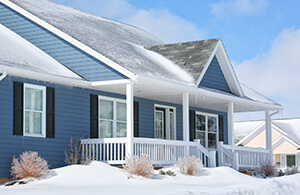
The onset of colder winter months means figuring out how to keep your house warm and should be a top concern for all homeowners. After all, the amount that you pay in heating costs can greatly increase when temperatures reach below zero.
Some of the best ways to keep your house warm in the winter, while keeping utility bills low, is a combination of things easily done by a homeowner, while other strategies are best done by a professional home heating service.
Petro Home Services can help you in both ways. Our home heating experts not only know how to keep your heating system running in top shape – we identify areas throughout the house where homeowners can take charge.
We’ve listed several of those things our home heating specialists might suggest to any homeowner. Focus on insulating your home - it’s the most important part of keeping it warm throughout the winter, and you’ll be surprised by how many small projects can effectively help you do this.
Ways to keep your house warm this winter.
Homeowners

Some of the suggestions may seem obvious, but they have been tried and tested by homeowners and home heating specialists for decades.
1. Rugs – Carpeting increases the insulation capabilities of a home, which means less heat escapes.
Wood and linoleum flooring get very cold in the winter when the heat isn’t blasting. That means your heating system is working overtime to overcome the cold emanating from your floors.
Large rugs or wall-to-wall carpeting, helps keep cold emanating from the floors, which then cools the air further. Plus, walking on carpets in the wintertime is much more enjoyable than walking on wood or linoleum.
2. Curtains - Windows are one of the leading sources of “heat bleed” - the act of heat produced by your heating system escaping through openings in your home.
Thick curtains keep heat from reaching the windows, which means less heat escapes. If used in tandem with heavy drapes, this will result in helping to keep your house warm in extreme cold.
3. Blocking Gaps - Blocking gaps is a simple approach to battling heat bleed.
Whether you install a plastic or fabric door bottom to seal a gap between a door and the floor, or you roll plastic over windowsills to isolate the window from the inside space, you’re blocking gaps.
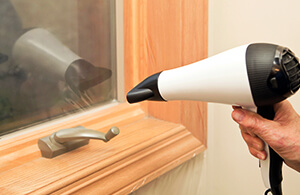
You may not know that there can be gaps throughout your home. For instance, the attic is one of the spaces in your home most responsible for losing heat.
Very often, people think that these measures are enough to keep a house warm in extreme cold, but the value of an end-to-end heating inspection of your home - from the gaps in your attic to the need for a new boiler - cannot be understated.
How to keep your house warm in the winter.
Heating professionals
Heating professionals approach the insulation and optimization of your heating system in a different way than the homeowner.
Heating technicians at Petro Home Services come to every home with only one goal in mind - saving you money on utilities, either immediately or in the long run.
With that said, heating professionals have a wide variety of options to choose from when trying to keep your house warm during the winter.
1. The Boiler - In many cases, the boiler in a home may be old.
Older boilers may not running at peak efficiency, most likely need maintenance, or need to be replaced outright.
A properly maintained boiler will run at peak efficiency, delivering heat throughout the home in the desired manner.
If a new boiler is needed, there could be significant up-front costs., Yet, over the lifetime of your new oil or gas boiler, you’ll see substantial savings. If you are not planning to leave your home anytime soon, a new and more efficient boiler will pay for itself over time.
2. Fireplaces and Chimneys - Do you have a fireplace in your home? If you do, you could be losing a large amount of heat.
Unless fireplace plugs are installed, or fireplace caps are outfitted to the top of the chimney, heat will escape to the outside in a big way. This will cause your heating bills to go up as your heating system tries to make up for all the lost heat exiting the house through the fireplace or chimney.
Also, you’ll want to have your chimney inspected. Soot and ash can build up and contaminate the air of your home, posing a health risk to you and your family.
3. Dampers - Dampers are mechanisms that control air flow through a home heating duct system.
Greater airflow from the heating source will increase the temperature throughout the home, while less airflow will lower the temperature. Home heating specialists can either repair or install dampers to give you more control over the heating in your home.
Also, if your home already has dampers installed, home heating specialists at Petro will be able to ensure it is working properly, from the joints that hold it together, to the motor for your home heating system.
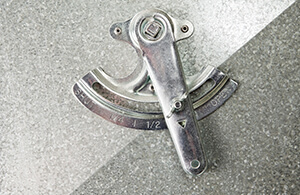
4. Thermostats - Sometimes thermostats outlive their usefulness. They will either need to be repaired or replaced.
Over time, thermostats can start delivering incorrect information to your heating system. For instance, if the home is colder than usual, it might be because the thermostat is not sending the correct signal to the heating system.
Thermostats are mechanical and electronic instruments, which means training is required to service them. It is strongly advised that you only let a trained home heating professional work on your thermostats to keep them in top operating order.
5. Filters - Filters in ductwork and throughout home heating systems keep the air you breathe safe and clean.
Particulates and pollutants travel throughout the house and, through a properly installed filter, will always be cleaned as it passes through.
Conversely, an improperly installed heating system filter will potentially bleed heat through the sides. Or, if it is too dirty, will release pollutants and particulates into the air.
A filter that is too clogged with particulates and pollutants will not ventilate heat properly, which will result in a colder home for you and your family.
Most often, a home heating professional will suggest replacing filters, and having them properly installed by a trained technician. This ensures your air is clean, there is proper airflow throughout the home, and that you are benefiting from all the heating fuel you’re paying for.
Conclusion
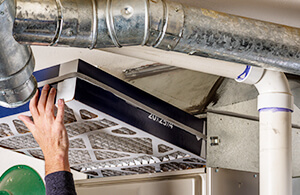
It’s clear that bringing a home heating professional into your home is the best way to ensure that your home stays warm this winter.
Extreme cold taxes heating systems greatly, and year-over-year, elements of your home heating system will need to be repaired or replaced.
Home heating specialists can offer many suggestions to a homeowner to help them lower their heating bills - suggesting rugs, covering up windows with plastic and curtains, and more.
But many of the most effective ways of heating your home require investments in your home heating infrastructure. Your boiler, thermostats, ductwork, and fireplaces all fit into this category.
If you’re worried about how you can keep your home warm this winter, contact Petro Home Services today. With decades of experience in the field, our home heating specialists have seen everything. That means your comfort, your family, and your home are in good hands.
Petro Home Services is proud to not only serve communities in DC, CT, MA, MD, NJ, NY, PA, and RI but we also proudly acknowledge the skills and experience of our expert team behind all resources. With insights on topics ranging from heating oil facts to common air conditioning questions, you can rely on Petro Home Services for facts and information to help you understand more about your heating, cooling and home comfort needs. This article and all articles on the Petro Home Services website have been approved by our team of home service experts.

